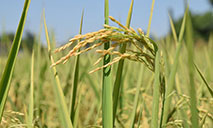Technology boosting rowing's development in China
XI'AN, Sept. 18 (Xinhua) -- The Olympic women's quadruple sculls champions eased to the win despite rain on Saturday, while other teams "have made great improvement" in their eyes during the rowing competition at China's 14th National Games in Yangling, Shaanxi Province.
"Technology contributes a lot to the development of rowing in China," said Luo Chen, from the Chinese Rowing Association.
According to Luo, a biomechanical system installed on training boats can monitor data such as each athlete's stroke frequency and strength, as well as the angle and depth of their oars in the water.
"If the strength on the left side is weaker than the other, athletes can make instant adjustments to ensure the boat always moves perfectly straight," Luo said.
Coaches also analyze data and compare with those of the world's best rowers, and make specific training plans.
"All athletes on the boat will move towards one standard, and the result is that they are faster in achieving perfect cooperation," said Luo.
This is part of the reason why Olympic rowing champions Chen Yunxia, Zhang Ling, Lyu Yang and Cui Xiaotong, who received different training modes before, can always cooperate perfectly.
High-tech also plays a key role in optimizing talents selection and cultivation.
Su Hui was selected as a rower when he was 13 years old, with the only reason being that he was "tall with long legs". Nowadays, physiological and biochemical indexes of athletes, such as maximum oxygen uptake, will be collected before they are selected to be members of a rowing team.
"Apart from height and muscles, these indexes are quite important in judging whether a person can be an Olympic champion or not," Su said. "It's really accurate."
According to Su, they used to believe that more training would equal more achievements, and that getting injured due to too much training was nothing strange.
At the National Games, however, indexes of all rowing athletes are collected at least once a week.
"We do this and adjust their intensity of training accordingly so as to be more efficient and prevent athletes from getting injured," Su explained.
During the intervals between games, athletes keep training on rowing machines. "The machine has been upgraded and helps us a lot in improving our core strength, which is the basis for being a good rower," said Ren Jiaqi, a rower from the Guangdong team.
To make China's rowing faster, the nation's sports department has cooperated with universities to develop some high-tech products, such as anti-drug coatings for boats to reduce resistance in water, and smart plates that can accurately display the calories in food to help rowers eat more healthily.
This is also the first time for Olympic teams to compete in the National Games along with domestic opponents.
"This is a great chance for us to learn more from Olympians," said Liu Hang, a coach from Henan's team. "Apart from their honorable spirit and advanced training methods, we also found they utilize high-tech to empower their training, and we will learn from this."
Photos
 Bumper harvest presents a magnificent scene of terraced rice paddies in SW China's Luzhou city
Bumper harvest presents a magnificent scene of terraced rice paddies in SW China's Luzhou city In pics: life of Siberian tigers in NE China's breeding center
In pics: life of Siberian tigers in NE China's breeding center Explore wonderland created by an alpine lake cluster in SW China's Yunnan
Explore wonderland created by an alpine lake cluster in SW China's Yunnan In pics: Museums across China unveil creative and culturally-inspired mooncakes
In pics: Museums across China unveil creative and culturally-inspired mooncakes
Related Stories
- China wins rowing women's eight bronze at Tokyo Olympics
- Historic moment for China with Olympic rowing gold
- China sets world best time to win women's quadruple sculls at Tokyo Olympics
- Most favourites go through first round of Olympic rowing regatta
- Men's Double Sculls Heat of rowing event of Tokyo Olympics
Copyright © 2021 People's Daily Online. All Rights Reserved.






